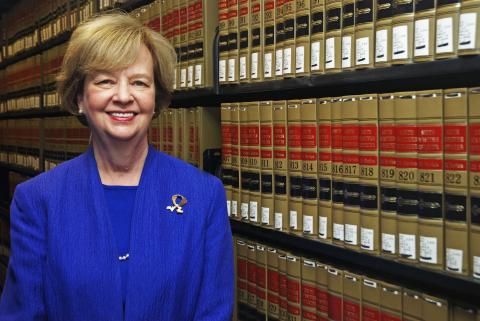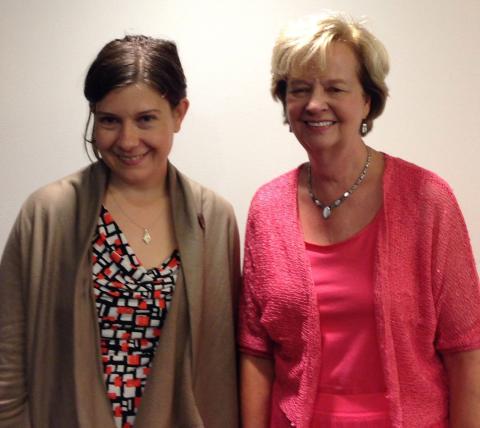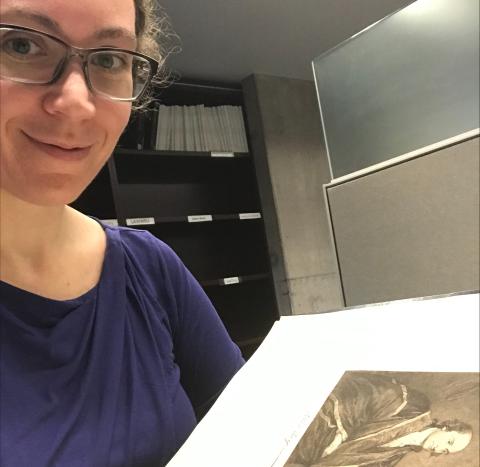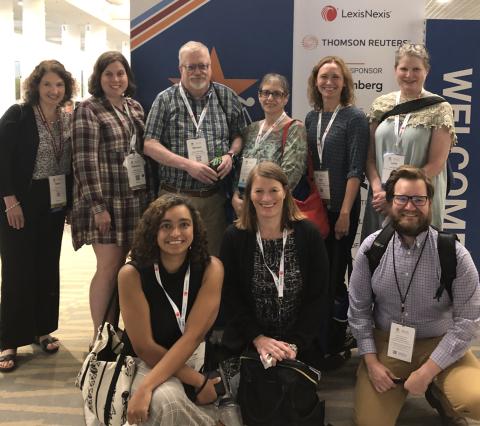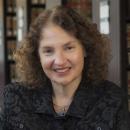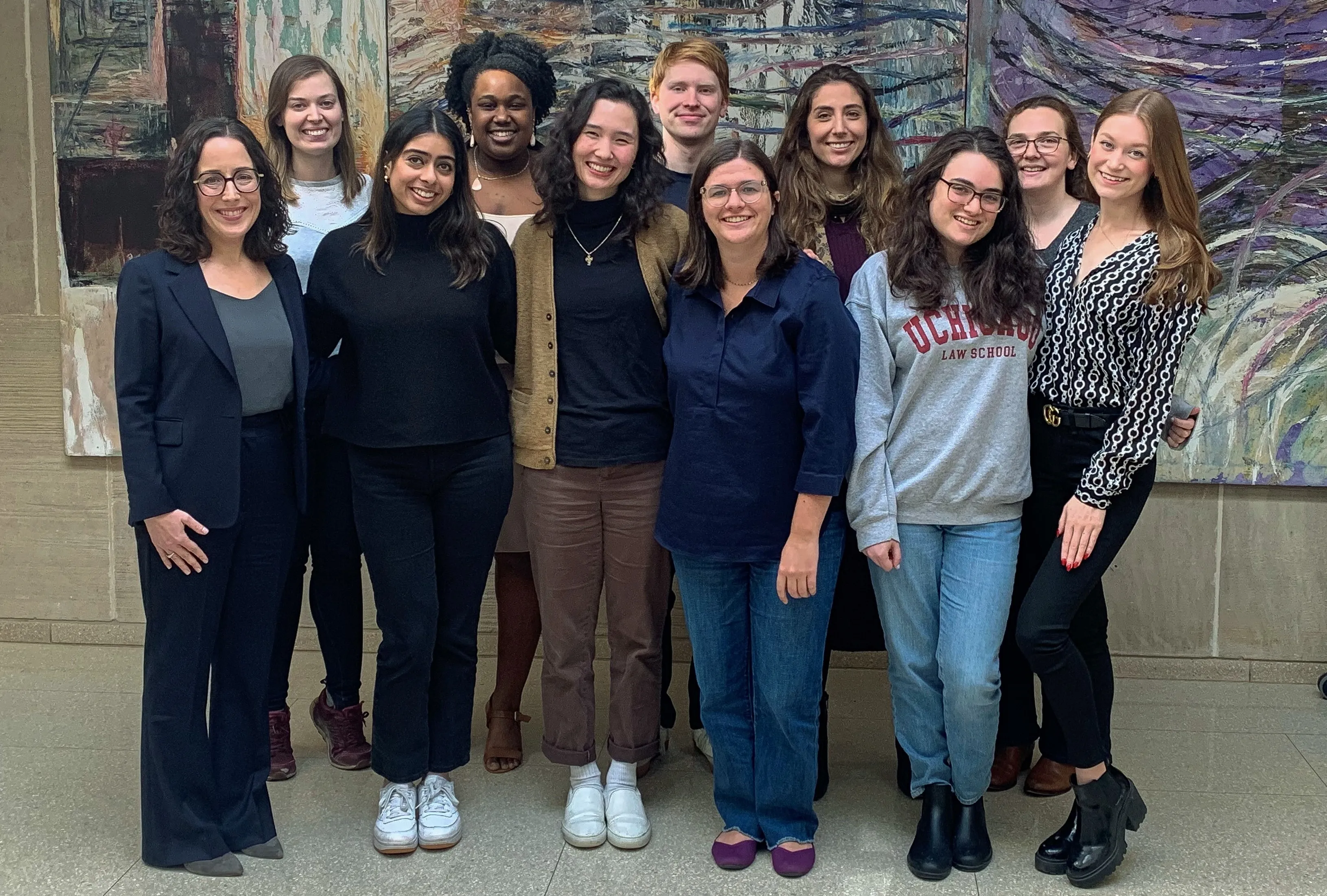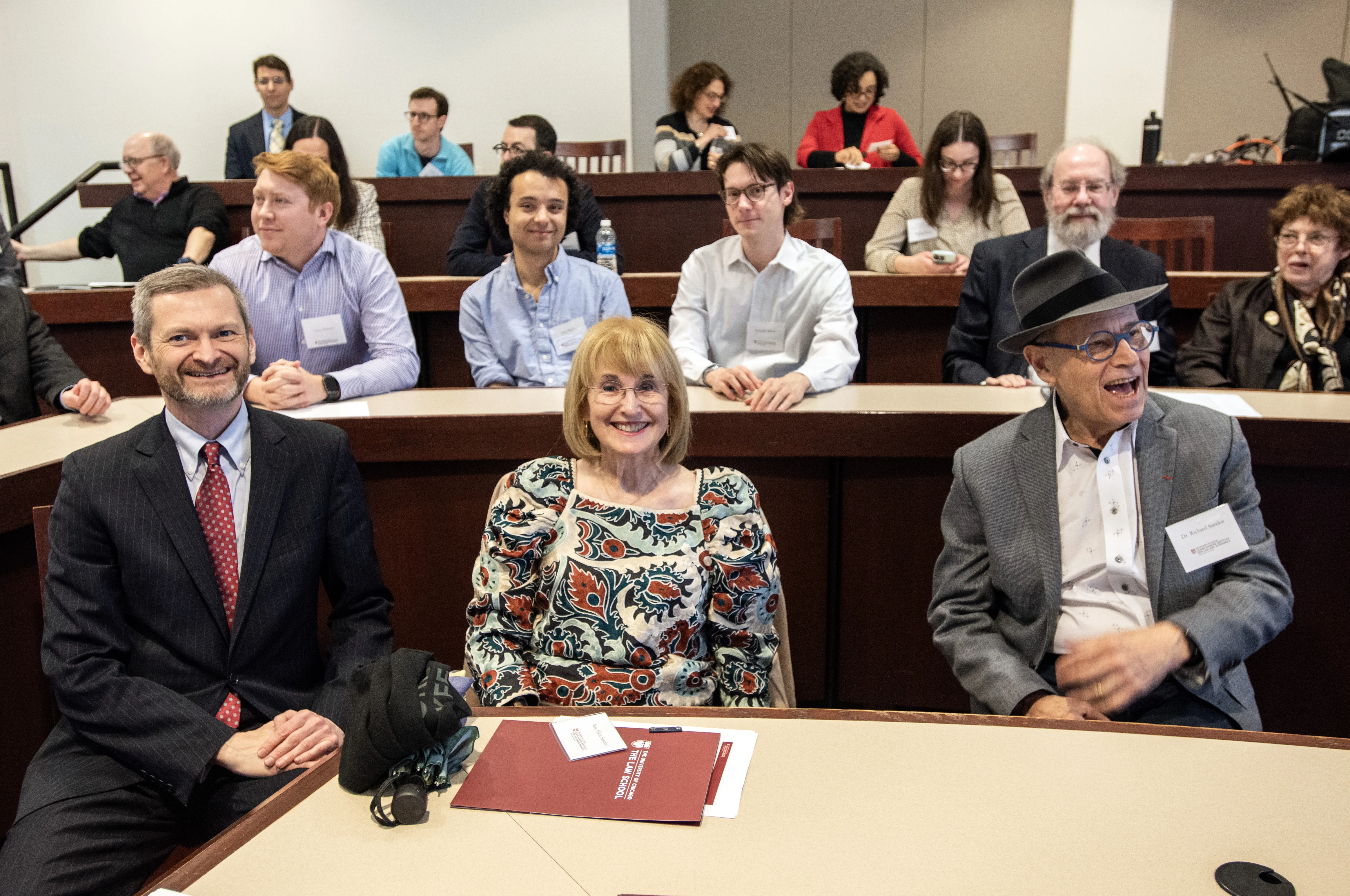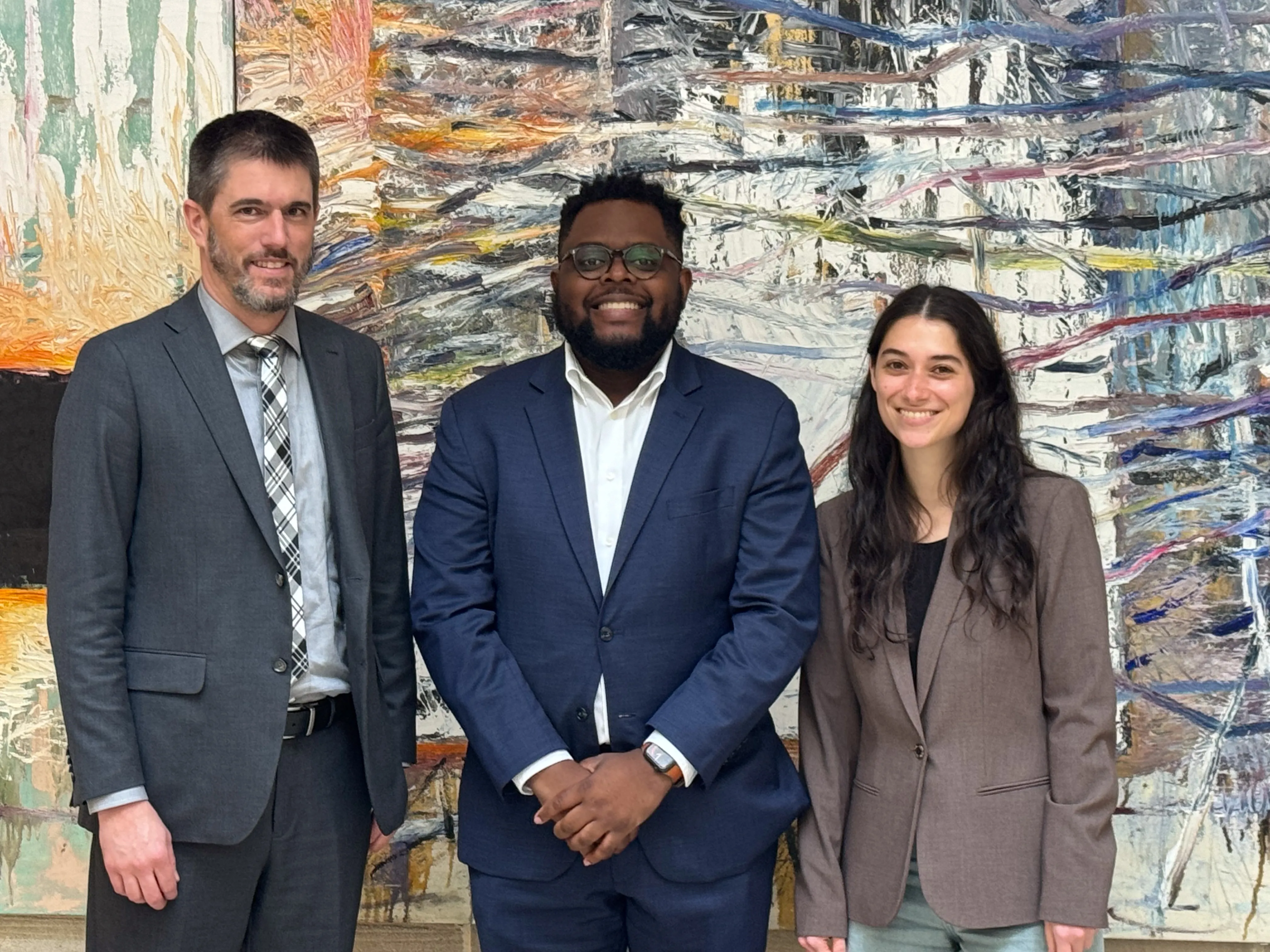D’Angelo Law Library’s Judith M. Wright Fellowship Marks Tenth Anniversary
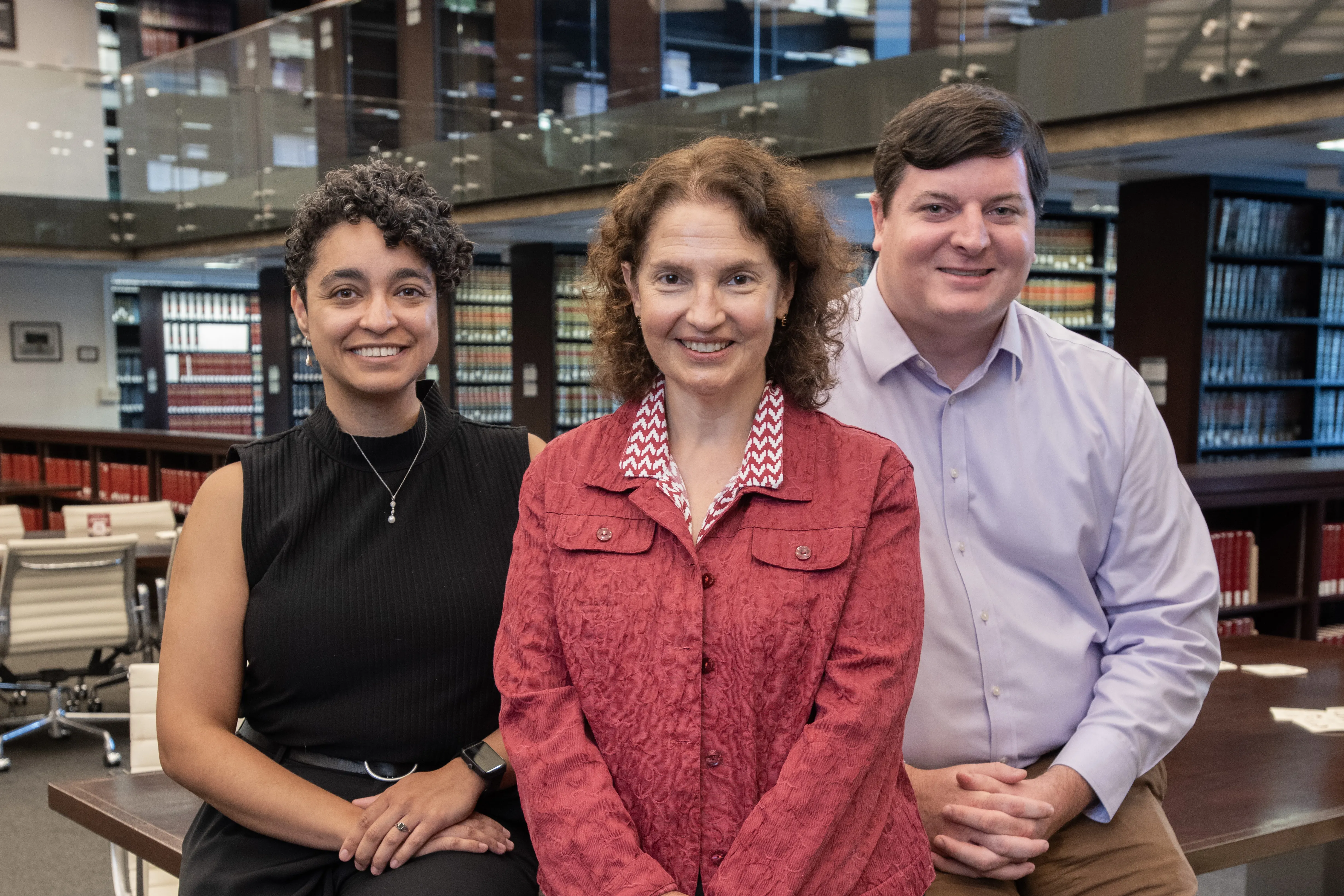
Ariel Scotese, the associate director of user services at the D’Angelo Law Library, was a few years into her career as a practicing attorney when she began rethinking her future aspirations. She had a love for the law, but was not finding joy in its practice. When Scotese started volunteering at the local public library, she had an epiphany. What about law library science?
In the summer of 2017, Scotese became the fourth Judith M. Wright Fellow at the D’Angelo Law Library, an experience that she says catapulted her career. “The fellowship was more than a stepping stone in my professional trajectory,” she said. “It launched me in a very important way. I don’t know if I’d be in my role here now if not for that experience.”
This year, the Judith M. Wright Fellowship marked its tenth anniversary. That’s ten years of helping talented professionals launch successful law library careers across the country. Scotese’s story captures the essence of what the fellowship was created to accomplish: provide career training, support, and mentorship to aspiring law librarians.
The program was established and named in honor of the former director of the D’Angelo Law Library following her retirement (in 2013) after forty years of exemplary service. The fellowship recognizes Wright’s legacy as an innovative leader and mentor to generations of law librarians at the Law School.
“One of Judith’s great contributions to not only our community, but also to the field of law library science, was her mentorship,” said Sheri Lewis, current director of the D’Angelo Law Library. “She was someone who invested a lot of time in people and in ensuring their success, so this fellowship really aims to embody that spirit—to provide learning and support to aspiring law librarians.”
For a six-week period over the summer, fellows choose to work on a specialized project, under the guidance of Law School librarians, that helps them develop their skills while at the same time creating an added value to the law library community. The library has had nine fellows over the last decade.
Taryn Marks, now the associate director of research and instructional services at Stanford’s Robert Crown Law Library, was the first Judith M. Wright Fellow in 2014. Marks developed the procedures for digitizing and uploading the Law School magazine into Chicago Unbound, the digital repository for research, publications, journals, lectures, archival collections, and everything in between that showcases the Law School’s intellectual activity. Thanks to Marks’s work as a fellow, alumni and the community can access past digital records of the magazine going back to its very first issue in the autumn of 1951.
“The experience gave me a close-up picture of how the UChicago law library operates, but it also gave me an automatic network of people whom I can still reach out to when I have questions,” said Marks. “Engaging with the librarians there, and other former fellows, throughout my career has served as a model for me on how to engage with new law librarians. I aspire to be as great a mentor as Sheri [Lewis] and to be as welcoming and knowledgeable as everyone I interacted with during my time as a fellow.”
All fellows have made significant contributions to the Law School library, but 2019 fellow Mary Shelly had a particularly unique and exciting project: she created an online exhibit that features a rare historical collection of portraits and autographs of former US Supreme Court justices. The documents span 160 years, from 1762 to 1922. The collection was a hidden treasure unearthed by Lewis and the D’Angelo team in early 2017 as they were working on a project in the library’s Rare Book Room.
The unexpected discovery is a stark example of how information can often be obscured and then brought back into the research community with the skilled work of librarians. The 154-page album containing the documents had been donated to the library in the late 1950s by Louis H. Silver, ’28, and safely kept in the Law Library’s collection.
“Knowing the work I was doing was making something that had previously been completely inaccessible available for people to see and research was really rewarding,” said Shelly, who had collaborated with several library and IT staff, and with professor and legal historian Alison LaCroix, to curate the online exhibit.
“Thinking about who and why someone might use the information and then building out the site with all of the pieces we wanted to include helped me understand what an undertaking like this requires,” said Shelly. “But it’s also gratifying to know that this exhibit can be used for many different purposes now: It can connect students and other scholars with these pieces of history in the D’Angelo Law Library; it can help fill in gaps or answer questions that are missing from other collections; and it can introduce the public to these historical documents, and the people behind them, in a way that’s simply fascinating.”
Today, Shelly serves as a reference librarian at the University of Pennsylvania’s Biddle Law Library, where she’s using many of the skills she gained during her time as a fellow. Recently, she has worked with Biddle Law Library archivists on a few in-person exhibits to highlight some of the unique items in their collections.
“The Judith M. Wright Fellowship helped me think about the big-picture goals of a library and how to serve the students, faculty, and researchers who use it,” she said. “It showed me how rewarding an academic law librarian career can be.”
Back at the D’Angelo Law Library, Scotese is also busy thinking about how to best serve Law School students and faculty, and in particular—building on ideas she developed while a fellow—how to best support clinical students and faculty.
Scotese’s fellowship project in 2017 focused on developing an outreach program to serve clinical faculty, students, and staff. She researched existing models and literature on outreach programs and developed a set of best practices and recommendations that she compiled into a report, all with the end goal of implementing the program at the Law School.
The plan was solid, but lacked a dedicated person to spearhead it. When Scotese was hired into the Law School full time in 2020, after working briefly at Cornell University’s law library, she revived her ideas for the clinical outreach program.
“Clinic classes allow students to use the skills they learned their first year on projects that are similar to what they will do as attorneys in a safe context,” Scotese explained. “This opportunity to reinforce skills in a practical context is why library outreach to these classes is critical. Researching a real client matter is very different from learning the law in a doctrinal class.”
Scotese knows this from her own experiences back when she was an attorney. It’s one of the reasons she chose that specific topic for her fellowship project. “I remember being a new attorney and being daunted by research,” she recalled. “I always joke that I didn’t become a good researcher until I became a librarian, and that’s because it’s a very challenging set of skills that takes time to develop.”
Through Scotese’s initiative, the D’Angelo Law Library has implemented a clinical librarian outreach program. And the librarian leading it—Keith Klein—was previously the 2023 Wright Fellow.
Klein’s fellowship project focused on creating best practices for LibGuides, including recommendations for incorporating the guides into the library’s regular operations. The practices he developed were applied to create and publish a LibGuide on generative AI in legal research, education, and practice.
Today, Klein serves as the experiential learning services librarian, yet another testament to the fellowship accomplishing its goal of creating a funnel for new talent in law librarianship.
It’s just what current director Lewis envisions the fellowship to continue to do as she stewards it into its second decade.
“All Wright Fellow alumni are very successful in their fields,” she said. “They all work at other law school libraries, including at some of our peer institutions, and a variety of other places. It feels good to know that we’ve contributed to the greater community with this program, and we are very lucky that every year we have an excellent response rate from new candidates interested in our field.”
